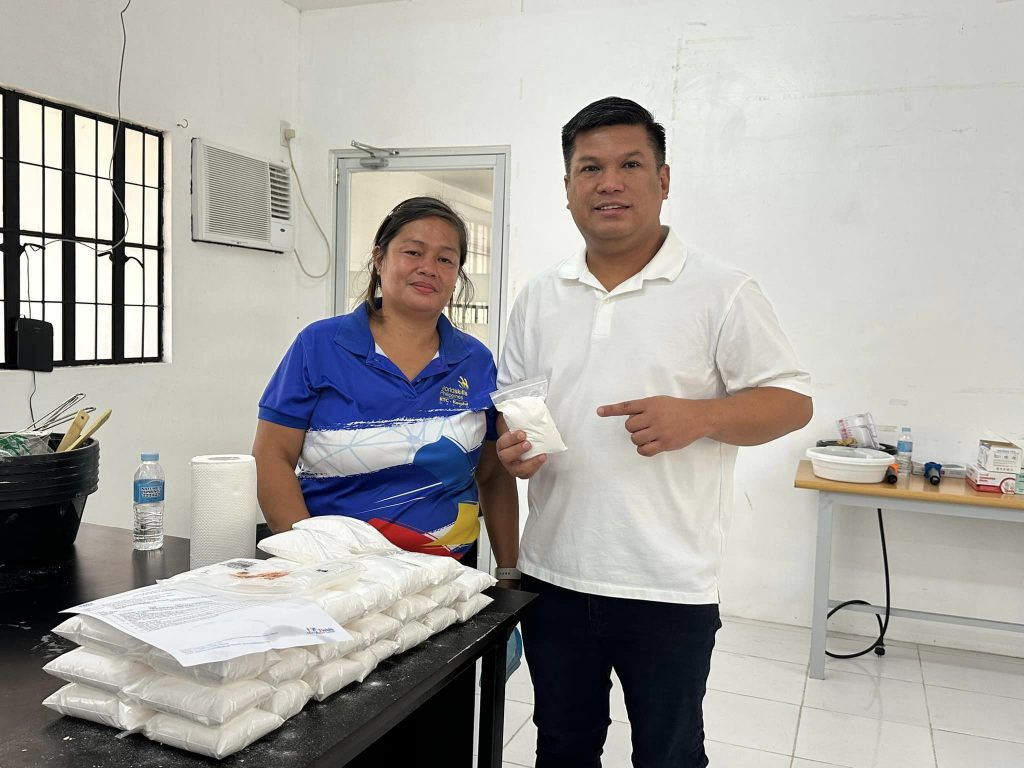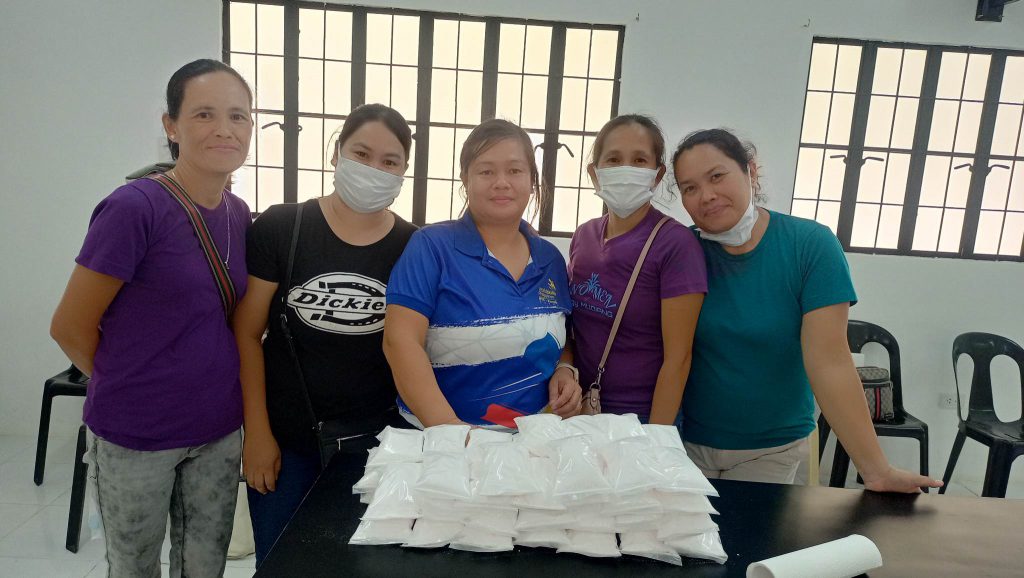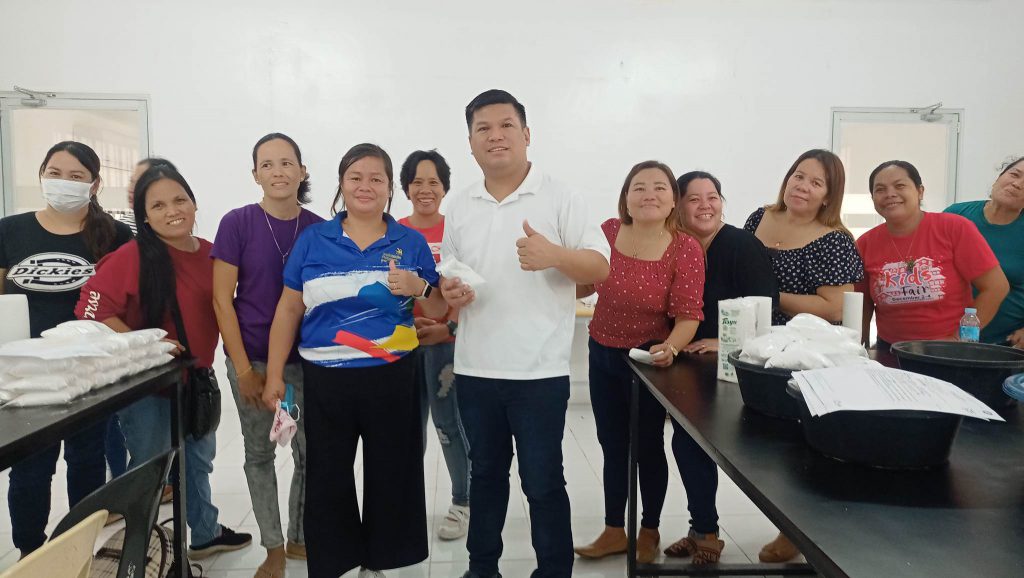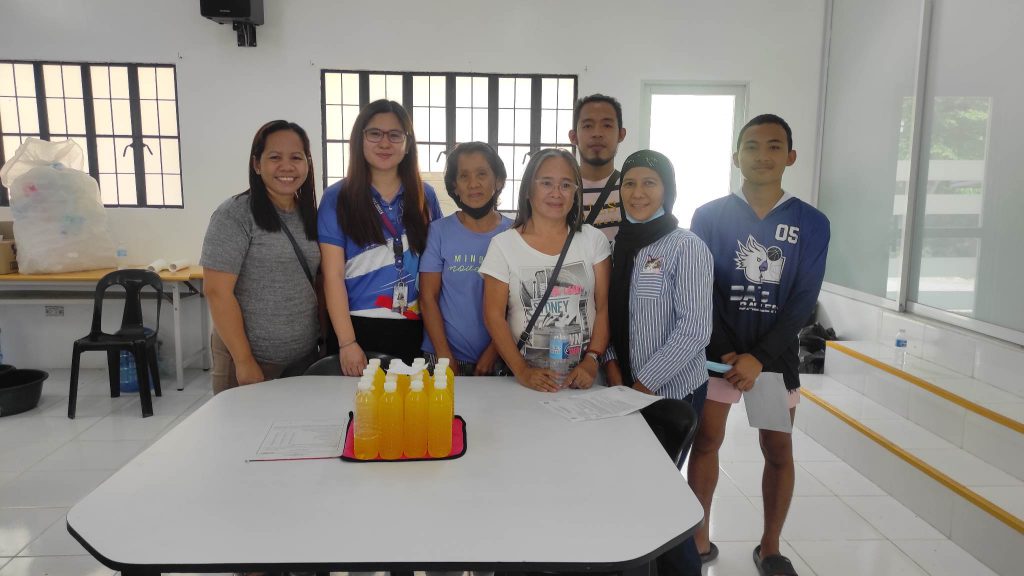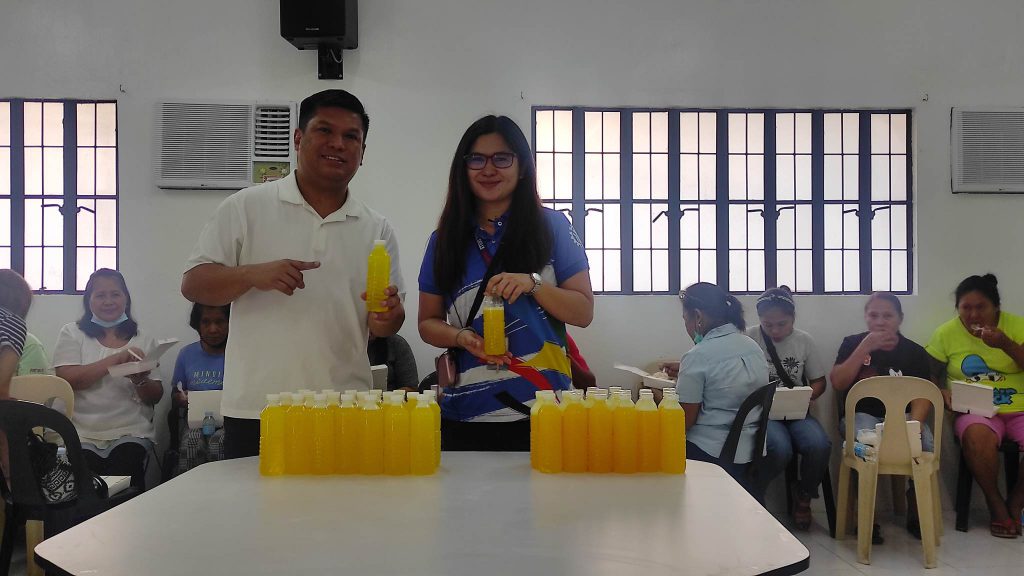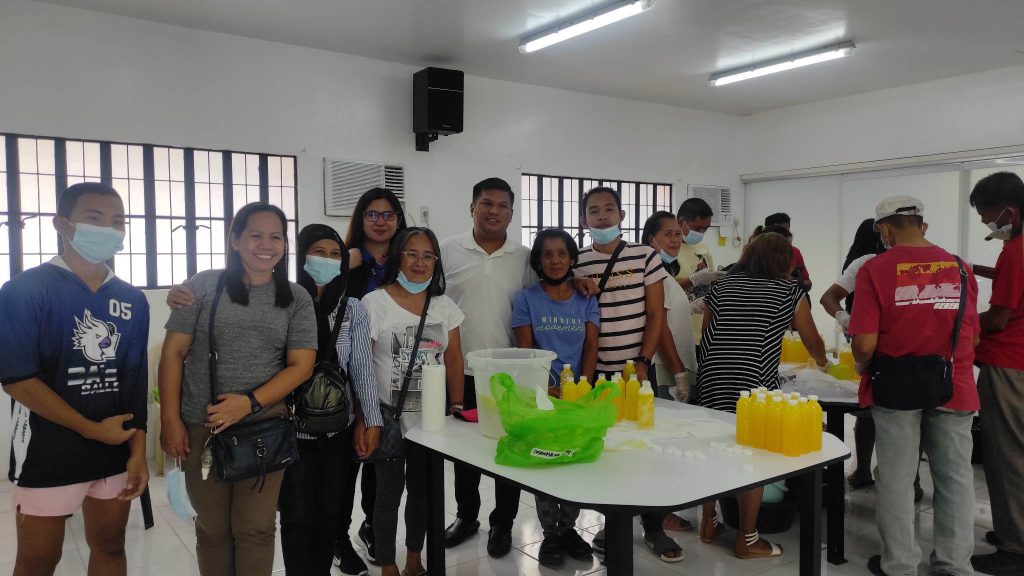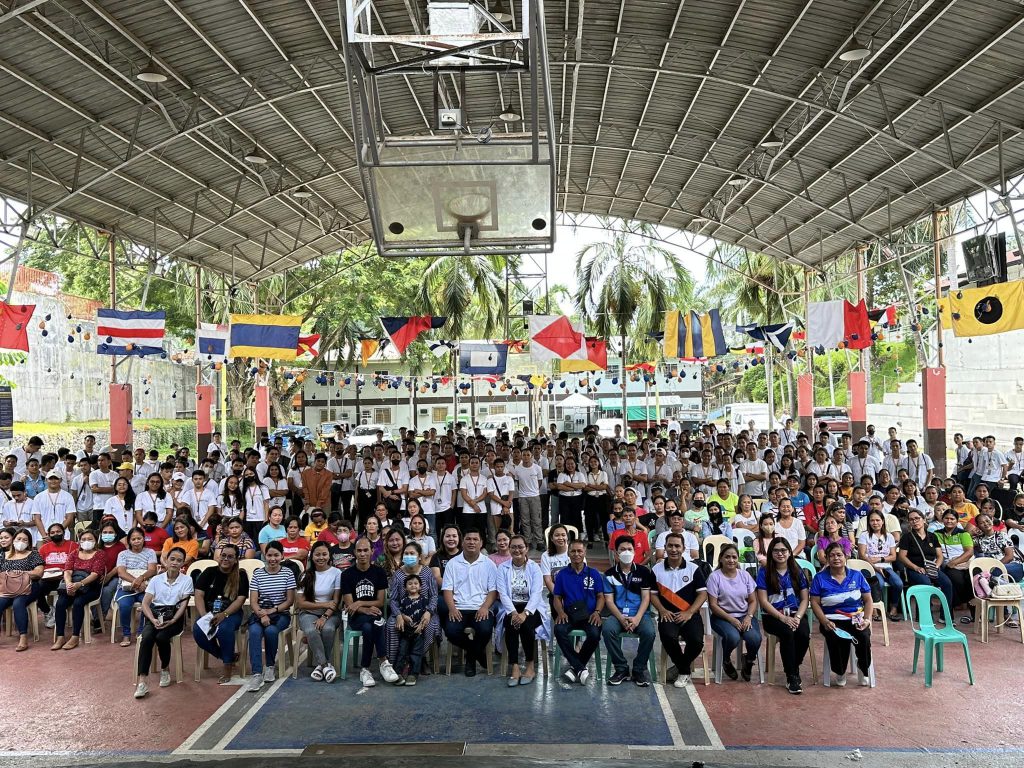In an effort to reach specialized groups and local communities, TESDA Regional Training Center-Korea Philippines Vocational Training Center (RTC-KPVTC), Davao, in collaboration with TESDA Davao City/Sur, Office of Councilor Al Ryan Alejandre, and DMMA College of Southern Philippines NSTP-CWTS Program organized a comprehensive Livelihood Skills Training program for priority barangays in Davao City yesterday, May 21, 2023, at DMMA College, Brgy. Tigatto, Davao City.
RTC-KPVTC, Davao focused on delivering skills training on Powder Detergent Making and Dishwashing Liquid Making for Brgy. Tigatto and Brgy. Mudiang, respectively. This training was delivered by trainers, Ms. Mary Grace A. Pelayo and Ms. Lanemie S. Pasaol. Other skills training conducted focused on Liquid Hand Soap and Body Soap Making for Brgy. Mahayag and Massage Therapy (Hilot) for Brgy. Communal.
The initiative aimed to equip participants with practical skills in detergent, dishwashing, soap production, and massage therapy, enabling them to establish their own small-scale businesses or find employment in related industries. Notably, Barangay Tigatto has a significant number of persons with disabilities (PWD) groups, further emphasizing the inclusive nature of the training.
The Livelihood Skills Training received strong support from Councilor Al Ryan Alejandre, who recognized the importance of empowering the local community through skills development.
The Livelihood Skills Training on Powder Detergent Making, Dishwashing Liquid Making, Liquid Hand Soap Making, and Massage Therapy (Hilot), delivered by RTC-KPVTC in partnership with TESDA DC/DS, the Office of Councilor Al Ryan Alejandre, and DMMA College of Southern Philippines, showcased a collaborative effort to uplift local communities. By equipping individuals with practical skills and entrepreneurial knowledge, the program aimed to create sustainable livelihood opportunities and promote economic growth in Davao.
This initiative sets an excellent example of how public-private partnerships and community-focused projects can empower individuals and contribute to the overall development of a region. It is hoped that similar initiatives will continue to be implemented, fostering a culture of skill development and economic empowerment in communities across the country.
